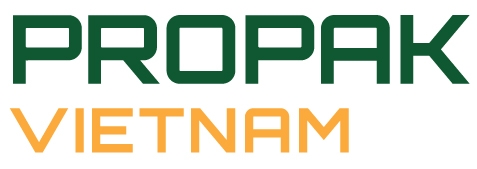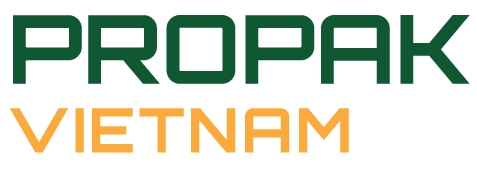
The international processing and packaging exhibition in Vietnam (ProPak Vietnam) 2019, featuring new technologies in the processing and packaging industry, opened in Ho Chi Minh City on March 19.

Illustrative image.
With the total
exhibition area covering up to 10.000 square metres, ProPak Vietnam 2019 has
attracted the participation of more than 540 exhibitors from 31 countries and
regions. Among them, the event also features international booths from Taiwan
(China), Germany, the Republic of Korea, Singapore, Thailand, China and Italy,
which are countries with strength in the processing and packaging industry.
This year’s event
promises to showcase a strong line–up of practical products and technologies
applied in the Vietnamese processing and packaging industry such as packaging,
bottling technology, brewing – beverage technology, pharmaceutical processing
& packaging, printing materials & technology, packaging accessories
& machineries, food safety & hygiene technology, quality control and
waste management & environmental technology.
Under the framework of
the exhibition, a number of seminars from both international and domestic
associations such as Active & Intelligent Packaging Industry Association
(AIPAI), The Vietnam Association of Food Science and Technology (VAFOST), Multi
Engineering -Solution Laboratory (MESLAB) and Vietnam Association of Testing
Laboratories (VINALAB).
Through the seminars,
visitors will have the opportunity to take a comprehensive look at this year’s
innovative products through amazing presentations of industry experts and
leaders.
Propak Vietnam 2019 takes
place from now until March 21, as an opportunity for domestic and foreign
businesses to exchange and enhance cooperation to improve product quality and
technology, as well as access leading manufacturers, with the most modern
solutions and technologies.
Source: NDO
In the spirit of "Party members go first, the people follow”, all households of Party members in the Doan Ket sub-region in Da Bac town, Da Bac district, voluntarily removed gates and fences, and donated land when the road expansion project passed through their properties. Inspired by their example, 68 households in the sub-region quickly followed suit, contributing over 1,400 sq.m of residential and perennial cropland to widen the main road through the residential area. The exemplary role of Party members in Doan Ket stands as a shining example of studying and following President Ho Chi Minh’s thought, morality, and lifestyle.
The Hoa Binh provincial People's Committee held a monthly meeting on May 29 to assess the implementation of socio-economic development tasks in the first six months of 2025, the progress of key projects, and some other important issues.
During his lifetime, President Ho Chi Minh always expressed his deep affection and special concern for children and youth. He once emphasized: "Caring for and educating children well is the responsibility of the entire Party and the entire people”; "First of all, the family (i.e. grandparents, parents, siblings) must do this job well”. "the Party Committees…, the Children’s Committee, the Youth Union, the education sector, and all related organizations must have specific plans to ensure children grow healthier and more progressive”. His teachings has been remaining valuable and serving as the guiding principles in the work of protecting, caring for, and educating children. In line with this ideology, Hoa Binh Province has continuously been prioritizing and investing resources in the well-being of children in recent years.
Mr. Nguyen Phi Long, the alternate Member of the Party Central Committee and Secretary of the Provincial Party Committee chaired the meeting of the Standing Committee of the Provincial Party Committee to provide opinions on several investment projects within the province. There was the attendance of Ms. Bui Thi Minh, the Permanent Deputy Secretary of the Provincial Party Committee and Chairwoman of the Provincial People’s Council; Mr. Bui Đuc Hinh, the Deputy Secretary of the Provincial Party Committee and Chairman of the Provincial People’s Committee and other members of the Standing Committee; the leaders from other departments, agencies, and some localities.
The Standing Board of the Vietnam Fatherland Front (VFF) Committee of Hoa Binh province held a meeting on May 28 to honour outstanding village elders, village heads, and reputable individuals from local ethnic minority and religious communities.
In mid-May, the provincial Museum organised an exhibition named "Duoi la co Dang Cong san Viet Nam quang vinh” (Under the flag of the glorious Communist Party of Vietnam). This meaningful activity took place in the joyful atmosphere to celebrate the country's major holidays and the Party congresses at all levels for the 2025-2030 term, towards the 14th National Party Congress.



